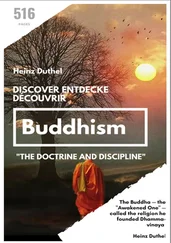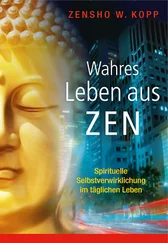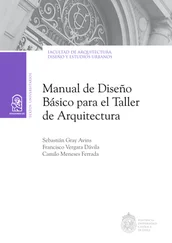Teitaro Suzuki - Manual of Zen Buddhism
Здесь есть возможность читать онлайн «Teitaro Suzuki - Manual of Zen Buddhism» весь текст электронной книги совершенно бесплатно (целиком полную версию без сокращений). В некоторых случаях можно слушать аудио, скачать через торрент в формате fb2 и присутствует краткое содержание. Жанр: Религиоведение, Религия, Руководства, на английском языке. Описание произведения, (предисловие) а так же отзывы посетителей доступны на портале библиотеки ЛибКат.
- Название:Manual of Zen Buddhism
- Автор:
- Жанр:
- Год:неизвестен
- ISBN:нет данных
- Рейтинг книги:3 / 5. Голосов: 1
-
Избранное:Добавить в избранное
- Отзывы:
-
Ваша оценка:
- 60
- 1
- 2
- 3
- 4
- 5
Manual of Zen Buddhism: краткое содержание, описание и аннотация
Предлагаем к чтению аннотацию, описание, краткое содержание или предисловие (зависит от того, что написал сам автор книги «Manual of Zen Buddhism»). Если вы не нашли необходимую информацию о книге — напишите в комментариях, мы постараемся отыскать её.
Manual of Zen Buddhism — читать онлайн бесплатно полную книгу (весь текст) целиком
Ниже представлен текст книги, разбитый по страницам. Система сохранения места последней прочитанной страницы, позволяет с удобством читать онлайн бесплатно книгу «Manual of Zen Buddhism», без необходимости каждый раз заново искать на чём Вы остановились. Поставьте закладку, и сможете в любой момент перейти на страницу, на которой закончили чтение.
Интервал:
Закладка:
Which, going up continuously by degrees the stages of purification, enters upon the stage of Tathagatahood;
Which, because of the original vows unattended by any striving, will perform its works in infinite worlds like a gem reflecting a variety of colours;
And which is manifested [when one perceives how] signs of individuation rise in all things as one realizes the course and realm of what is seen of Mind itself, and thereby I and other Bodhisattva-Mahasattvas are enabled to survey things from the point of view which is not hampered by marks of individuality and generality nor by anything of the false imagination, and may quickly attain supreme enlightenment and enable all beings to achieve the perfection of all their virtues.
Replied the Blessed One: Well done, well done, Mahamati! and again, well done, indeed, Mahamati! Because of your compassion for the world, for the benefit of many people, for the happiness of many people, for the welfare, benefit, happiness of many people, both of celestial beings and humankind, Mahamati, you present yourself before me and make this request. Therefore, Mahamati, listen well and truly, and reflect, for I will tell you.
Assuredly, said Mahamati the Bodhisattva-Mahasattva, and gave ear to the Blessed One.
The Blessed One said this to him: Mahamati, since the ignorant and the simple-minded, not knowing that the world is what is seen of Mind itself, cling to the multitudinousness of external objects, cling to the notions of being and nonbeing, oneness and otherness, bothness and not-bothness, existence and non-existence, eternity and non-eternity, as having the character of self-substance ( svabhava ), which idea rises from discrimination based on habit-energy, they are addicted to false imaginings.
Mahamati, it is like a mirage in which the springs are seen as if they were real. They are imagined so by the animals who, thirsty from the heat of the season, would run after them. Not knowing that the springs are their own mental illusions, the animals do not realize that there are no such springs. In the same way, Mahamati, the ignorant and simple-minded with their minds impressed by various erroneous speculations and discriminations since beginningless time; with their minds burning with the fire of greed, anger, and folly; delighted in a world of multitudinous forms; with their thoughts saturated with the ideas of birth, destruction, and subsistence; not understanding well what is meant by existent and non-existent, by inner and outer, these ignorant and simple-minded fall into the way of grasping at oneness and otherness, being and non-being [as realities].
Mahamati, it is like the city of the Gandharvas which the unwitted take for a real city, though it is not so in fact. This city appears in essence owing to their attachment to the memory of a city preserved in seed from beginningless time. This city is thus neither existent nor non-existent. In the same way, Mahamati, clinging to the memory ( vasana ) of erroneous speculations and doctrines since beginningless time, they hold fast to ideas such as oneness and otherness, being and non-being, and their thoughts are not at all clear about what is seen of Mind-only.
Mahamati, it is like a man, who, dreaming in his sleep of a country variously filled with women, men, elephants, horses, cars, pedestrians, villages, towns, hamlets, cows, buffalos, mansions, woods, mountains, rivers, and lakes, enters into its inner apartments and is awakened. While awakened thus, he recollects the city and its inner apartments. What do you think, Mahamati? Is this person to be regarded as wise, who is recollecting the various unrealities he has seen in his dream?
Said Mahamati: Indeed, he is not, Blessed One.
The Blessed One continued: In the same way the ignorant and simple-minded who are bitten by erroneous views and inclined towards the philosophers, do not recognize that things seen of the Mind itself are like a dream, and are held fast by the notions of oneness and otherness, of being and non-being.
Mahamati, it is like the painter's canvas on which there is neither depression nor elevation as imagined by the ignorant. In the same way, Mahamati, there may be in the future some people brought up in the habit-energy, mentality, and imagination based on the philosophers' erroneous views; clinging to the ideas of oneness and otherness, or bothness and not-bothness, they may bring themselves and others to ruin; they may declare those people nihilists who hold the doctrine of no-birth apart from the category of being and non-being. They [argue against] cause and effect, they are followers of the wicked views whereby they uproot meritorious causes of unstained purity. They are to be kept away by those whose desires are for things excellent. They are those whose thoughts are entangled in the error of self, other, and both, entangled in the error of imagining being and non-being, assertion and refutation; and hell will be their final resort.
Mahamati, it is like the dim-eyed ones who, seeing a hair-net, would exclaim to one another, saying: “It is wonderful! it is wonderful! Look, O honourable sirs!” And the said hair-net has never been brought into existence. It is in fact neither an entity nor a non-entity, because it is seen and not seen. In the same manner, Mahamati, those whose minds are addicted to discrimination of the erroneous views as cherished by the philosophers, and who are also given up to the realistic ideas of being and non-being, oneness and otherness, bothness and not-bothness, will contradict the good Dharma, ending in the destruction of themselves and others.
Mahamati, it is like a firebrand-wheel which is no real wheel but which is imagined to be of such character by the ignorant, but not by the wise. In the same manner, Mahamati, those whose minds have fallen into the erroneous views of the philosophers will falsely imagine in the rise of all beings [the reality of] oneness and otherness, bothness and not-bothness.
Mahamati, it is like those water-bubbles in a rainfall which have the appearance of crystal gems, and the ignorant taking them for real crystal gems run after them. Mahamati, they are no more than water-bubbles, they are not gems, nor are they not-gems, because of their being so comprehended [by one party] and being not so comprehended [by another] - In the same manner, Mahamati, those whose minds are impressed by the habit-energy of the philosophical views and discriminations will regard things born as non-existent and those destroyed by causation as existent.
XXXVII
Further, Mahamati, there are four kinds of Dhyanas. What are the four? They are: (1) The Dhyana practised by the ignorant, (2) the Dhyana devoted to the examination of meaning, (3) the Dhyana with Suchness for its object, and (4) the Dhyana of the Tathagatas.
What is meant by the Dhyana practised by the ignorant? It is the one resorted to by the Yogins exercising themselves the discipline of the Sravakas and Pratyekabuddhas, who perceiving that there is no ego-substance, that things are characterized with individuality and generality, that the body is a shadow and a skeleton which is transient, full of suffering, and is impure, persistently cling to these notions which are regarded as just so and not otherwise, and who starting from them successively advance until they reach the cessation where there are no thoughts. This is called the Dhyana practised by the ignorant.
Mahamati, what then is the Dhyana devoted to the examination of meaning? It is the one [practised by those who,] having gone beyond the egolessness of things, individuality and generality, the untenability of such ideas as self, other, and both, which are held by the philosophers, proceed to examine and follow up the meaning of the [various] aspects of the egolessness of things and the stages of Bodhisattvahood. This is the Dhyana devoted to the examination of meaning.
Читать дальшеИнтервал:
Закладка:
Похожие книги на «Manual of Zen Buddhism»
Представляем Вашему вниманию похожие книги на «Manual of Zen Buddhism» списком для выбора. Мы отобрали схожую по названию и смыслу литературу в надежде предоставить читателям больше вариантов отыскать новые, интересные, ещё непрочитанные произведения.
Обсуждение, отзывы о книге «Manual of Zen Buddhism» и просто собственные мнения читателей. Оставьте ваши комментарии, напишите, что Вы думаете о произведении, его смысле или главных героях. Укажите что конкретно понравилось, а что нет, и почему Вы так считаете.








